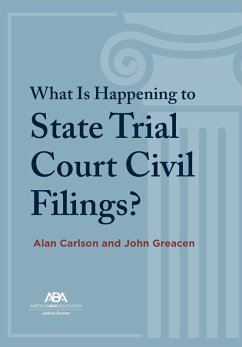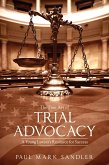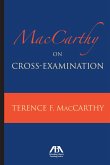A fundamental assumption of court administration since its creation as a profession has been the inevitability of growth. There will always be more cases. This will require ever larger courthouses, more judges, more staff, newer technology, and larger budgets. But what does recent history tell us about civil filings?
What Is Happening to State Trial Court Civil Filings?: The Unsolved Riddles reviews the experience of five states over the last 16-41 years. The findings are confounding and perplexing. Civil filings are not inexorably rising. There was a surge around the Great Recession, but civil case filing levels in state trial courts are at or below levels 20 years ago. Per capita filings have dropped more steeply. Per capita civil case filing levels vary widely, both within states and across states, and cannot be predicted from population levels. Legislative changes affecting court jurisdiction and procedures, such as increasing the limit of the amount in controversy in small claims court, seldom have the expected effect. Case management programs have unintended consequences. Efforts to assist unrepresented litigants have not reversed the decline in small claims filings. State trial courts need to identify more relevant case type categories, track filings levels in greater detail, and pay attention to the impact of legal and procedural changes on filing levels. Finally, courts should realize that filings are a valuable performance measure of public trust and confidence in the judiciary.
What Is Happening to State Trial Court Civil Filings?: The Unsolved Riddles reviews the experience of five states over the last 16-41 years. The findings are confounding and perplexing. Civil filings are not inexorably rising. There was a surge around the Great Recession, but civil case filing levels in state trial courts are at or below levels 20 years ago. Per capita filings have dropped more steeply. Per capita civil case filing levels vary widely, both within states and across states, and cannot be predicted from population levels. Legislative changes affecting court jurisdiction and procedures, such as increasing the limit of the amount in controversy in small claims court, seldom have the expected effect. Case management programs have unintended consequences. Efforts to assist unrepresented litigants have not reversed the decline in small claims filings. State trial courts need to identify more relevant case type categories, track filings levels in greater detail, and pay attention to the impact of legal and procedural changes on filing levels. Finally, courts should realize that filings are a valuable performance measure of public trust and confidence in the judiciary.
Dieser Download kann aus rechtlichen Gründen nur mit Rechnungsadresse in A, D ausgeliefert werden.









